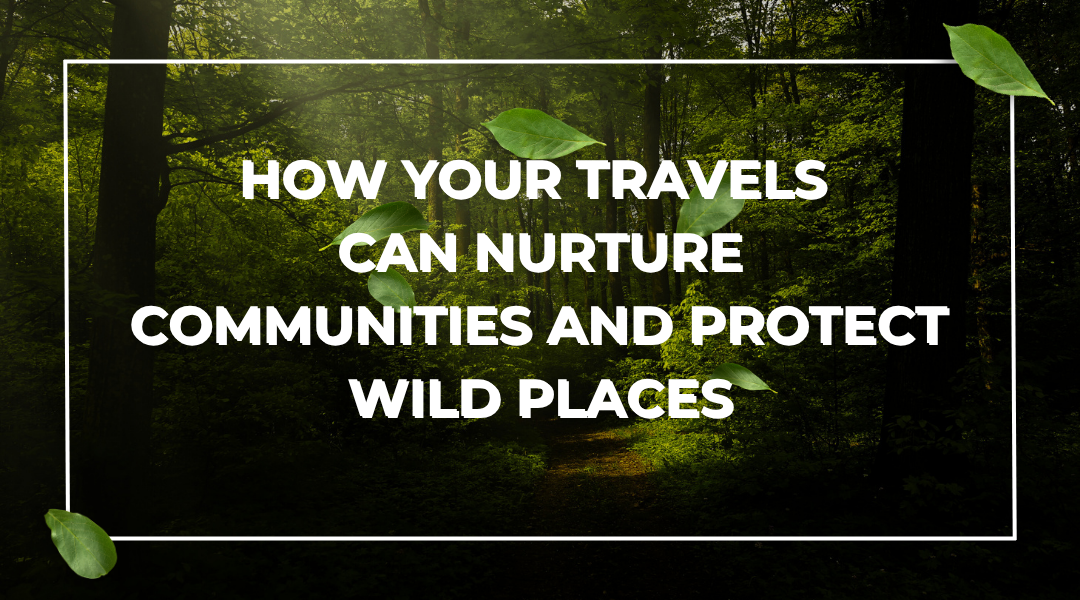We travel to be transformed, to witness the staggering beauty of our planet and connect with cultures different from our own. But in an age of over tourism and environmental strain, a critical question emerges: does our presence help or harm the very places that captivate us? The old model of travel—where we simply arrive, consume, and leave—is no longer sustainable. A new, more rewarding approach is taking hold, one where we see ourselves not as tourists, but as temporary guests and active participants in the well-being of our destinations.
This is about shifting our role from passive observer to conscious contributor. It’s a journey that connects the global to the local, proving that the most meaningful souvenirs aren’t things we buy, but the positive impact we leave behind.
The Ripple Effect of Conscious Choices
1. From Trash to Treasure: Reimagining Our Relationship with Waste
The “reduce, reuse, recycle” mantra is a start, but on the ground, it’s about creative, community-centric action.
- Become a Zero-Waste Traveler: Go beyond the reusable water bottle. Pack a lightweight “zero-waste kit”: a reusable coffee cup for morning markets, bamboo cutlery for street food, and a cloth bag for impulse buys. In places like Bali or Thailand, where plastic pollution is a severe issue, your simple refusal of a plastic straw can feel like a small act of solidarity with local environmental groups.
- Support Circular Economy Pioneers: Seek out and support businesses that are innovating with waste. This could be a restaurant that composts all its organic waste to fertilize a partner farm, a hotel that uses recycled materials in its construction, or a social enterprise that employs local women to turn discarded plastic into beautiful, sellable handicrafts. By patronizing these spots, you’re funding a solution.
2. Championing Homegrown Green Innovation
Sustainable technology isn’t just for wealthy nations; some of the most ingenious solutions are emerging in the communities most affected by environmental challenges.
- Power Your Stay with the Sun: Choose accommodations that proudly run on renewable energy. In the deserts of Morocco or the plains of Kenya, you might find lodges powered entirely by solar panels, with solar-heated water and innovative water-harvesting systems. Staying there isn’t just a vacation; it’s an investment in their operational model.
- Emplace Local Transport Solutions: Instead of a gas-guzzling 4×4, could you use an electric tuk-tuk hired from a local driver? In cities from Amsterdam to Medellín, the most authentic way to get around is on a bike-share program or the city’s integrated metro. These choices reduce emissions and put money directly into local transit systems.
3. Travel That Gives Back: The Heart of Eco-Tourism
True eco-tourism isn’t just about staying in a jungle lodge; it’s about ensuring your visit actively contributes to conservation and community prosperity.
- Choose Community-Run Tourism: Opt for a homestay with an Indigenous family in the Peruvian Amazon, or a tour guide from a Maasai-owned cooperative in Kenya. This ensures your money stays within the community, providing a direct economic incentive to protect their land and culture from destructive alternatives like logging or poaching. You’re not just visiting; you’re becoming part of their story of resilience.
- Be a Conservation Volunteer (For a Day): You don’t need to commit to a month-long program. Many destinations offer single-day opportunities to contribute. You could spend an afternoon planting native trees with a reforestation NGO in Costa Rica, help with a beach clean-up on a Thai island organized by local students, or participate in a citizen-science project counting seabirds in Scotland. These hands-on experiences create a profound connection to the place.
4. Amplify Your Impact Through Collective Action
Individual choices are powerful, but collective action creates lasting change.
- Become a Vocal Advocate: After a transformative trip, don’t just post pictures. Share the stories of the local conservationists you met and the community projects you supported. Use your social media to promote the right kind of tourism, directing your network to the ethical businesses you discovered.
- Support the Watchdogs: Donate to or follow organizations that hold the tourism industry accountable, like Tourism Concern or the Global Sustainable Tourism Council. They do the hard work of setting standards and advocating for policies that protect people and the planet from exploitative tourism.
Conclusion: The Legacy We Leave
In the end, this isn’t about a checklist of rules to follow. It’s about a fundamental shift in perspective. It’s about asking, “How can my journey make this place better?”
When we choose to travel this way, we become part of a global community of stewards. We help prove that a thriving local economy and a healthy, protected environment are not mutually exclusive—they are two sides of the same coin. The ultimate goal is to ensure that the vibrant markets, the ancient forests, and the diverse cultures we cherish today don’t just survive, but flourish. And that the only thing we take from them is inspiration, and the only thing we leave behind is gratitude.
